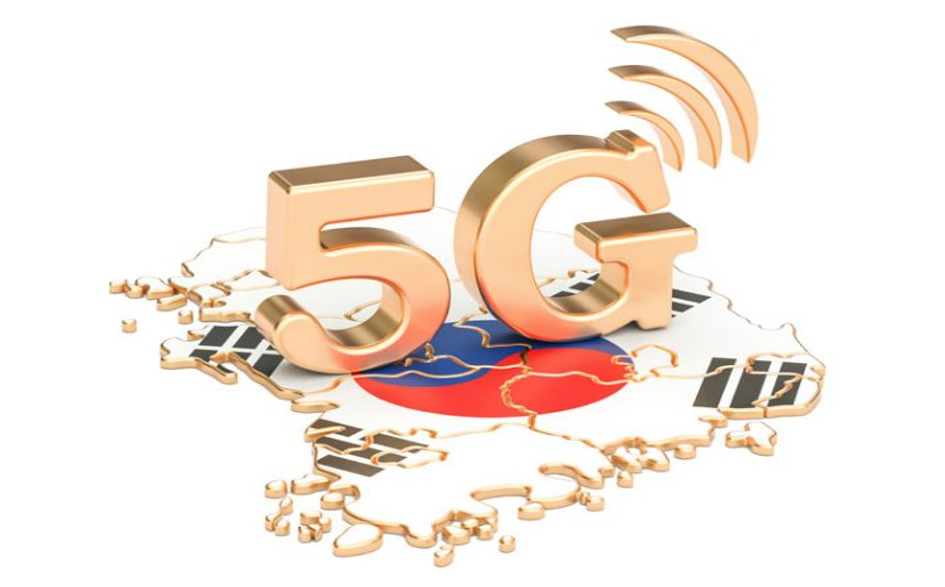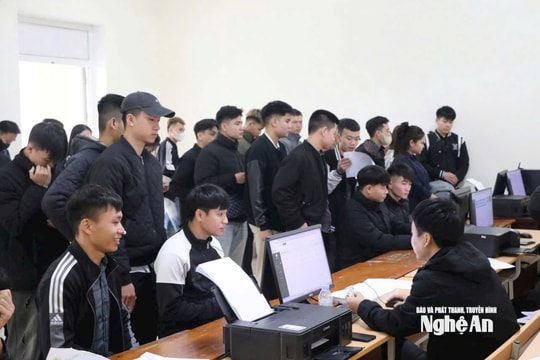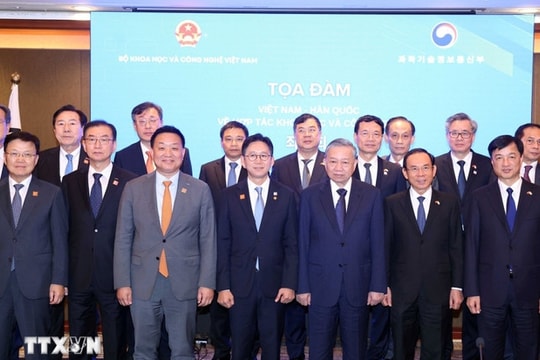South Korea revokes 28 GHz band 5G licenses from mobile operators
(Baonghean.vn) - Information from the Korean Government said that 2 out of 3 Korean mobile network operators have been asked to return their 5G 28 GHz band licenses due to not meeting the Government's network deployment requirements.
South Korea is considered the first country in the world to deploy a commercial 5G network in April 2019. As of the end of July 2022, the number of 5G mobile subscribers in the country reached 25.1 million, accounting for 33.3% of the total number of mobile subscribers nationwide.
Previously, in June 2018, the Korean Government launched a spectrum auction for 5G with the aim of promoting 5G-based industry and service innovation. With such an aim, the Korean Government decided to allocate the 3.5 GHz band for nationwide 5G deployment, while the 28 GHz band is reserved for “hot spots” where many mobile subscribers are concentrated, such as stadiums, airports, subway stations, etc.
 |
Illustration photo. |
In this auction, all three of Korea's largest mobile operators including SK Telecom, KT Telecom and LG Uplus won the right to use the frequency spectrum in the 3.5 GHz and 28 GHz bands. This auction also brought in 2.776 billion USD to the government budget.
However, the Korean government recently announced that it will revoke the 28 GHz spectrum licenses granted to operators for 5G deployment, citing the lack of investment resources and failure by mobile operators to meet government requirements in deploying 5G mobile networks in this band.
Accordingly, mobile operators KT Telecom and LG Uplus will lose the right to use the 28 GHz frequency spectrum that they won in the spectrum auction in 2018 due to not deploying enough base stations as committed. Meanwhile, the largest mobile operator in Korea, SK Telecom, was allowed to extend the deadline until May 2023, after which if the network operator fails to fulfill its commitment to deploy 15,000 base stations in the 28 GHz band, the Government will revoke the license like the two above networks.
Explaining this decision, the Korean Ministry of Science and ICT said that mobile network operators have completed the required number of base stations in the 3.5 GHz band (22,500 base stations) but all have failed to reach the target of deploying 15,000 base stations in the 28 GHz band nationwide as committed to the Government.
“As of now, more than three years after the 28 GHz spectrum was allocated, base stations in the 28 GHz band built by mobile carriers account for only 10 percent of the initial commitment, and there are no smartphone terminals supporting the 28 GHz band in Korea,” the Ministry of Science and ICT added.
Globally, 5G is in its early stages of development both in terms of market and technology. However, South Korea is one of the countries that has demonstrated early success in scaling up and building a comprehensive national strategy to maximize the potential transformation of 5G networks.
The Korean experience shows that even in countries with developed mobile industries, the government still plays a very important role as a key factor in promoting the development of the 5G ecosystem. The government must come up with clear strategies and adopt a comprehensive process in deploying the next generation mobile network.
In its initial launch in April 2019, South Korea only deployed commercial 5G services in the business-to-consumer (B2C) segment. To meet customer demand, South Korean mobile operators have been providing specialized 5G services in the business-to-business (B2B) segment such as smart factories, drones, etc. The South Korean government is also actively funding development investment funds aimed at 5G projects in the country's strategic industries and core services.
In addition, the Korean government has also introduced many support measures, including tax exemptions for 5G investments and incentives for network sharing in rural and suburban areas to facilitate the rapid deployment of 5G networks nationwide.
To make Korea a global 5G leader, the government has defined a national 5G vision, removed regulatory barriers, and facilitated collaboration among stakeholders, including government agencies, telecommunications companies, vendors, researchers, and civil society.
References
[1].https://www.rcrwireless.com/20221121/5g/korean-government-cancel-28-ghz-spectrum-local-carriers
[2].https://telecoms.com/518619/korea-recalls-mobile-operators-5g-licences/
[3].https://www.rcrwireless.com/20220916/carriers/south-korea-ends-july-25-million-5g-subscribers
[4]. Entering the 5G era: Lessons from Korea


.jpg)

.jpg)



